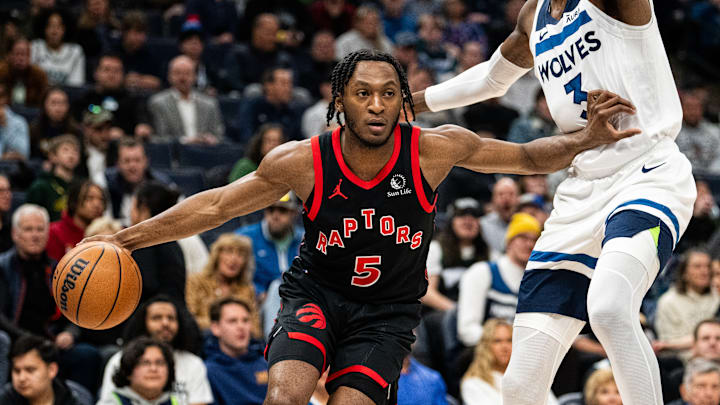The Toronto Raptors know their No. 1 goal for this offseason: re-sign Immanuel Quickley.
There are certainly other goals: agree to a contract extension with Scottie Barnes, use their cap space to improve the team, find a trade suitor for Bruce Brown by the NBA Draft, nail their draft picks, etc. From the moment that they chose the trade package from the New York Knicks for OG Anunoby, however, their top goal has been to re-sign Immanuel Quickley.
The 24-year-old point guard is a restricted free agent this summer, which gives the Raptors a lot of negotiating leverage to work out a new contract. On the other hand, Quickley has a lot of negotiating leverage himself given how highly the Raptors valued him in trading for him, and it wasn't just for four months of basketball on a lottery team.
That leverage for Quickley goes up significantly if another team is willing to sign him to a maximum contract.
Immanuel Quickley could be signed away
The Orlando Magic have a significant amount of cap space this summer and need a point guard, and Immanuel Quickley would be an excellent fit with their young core. They could come to the table with a maximum contract for Quickley and force the Raptors to decide whether they are comfortable "overpaying" on a new deal.
In most instances where a restricted free agent has a strong suitor like this, the team owning his restricted rights either pays up or the two sides negotiate a trade to keep the team signing the player away from tying up their cap space for so long.
It may be that the Raptors would match any offer for Quickley, but let's entertain a scenario where Quickley tells them he has a max offer with the Orlando Magic, and the Magic come to the table with a trade offer to execute a sign-and-trade for Quickley. Would Toronto say yes? Let's take a closer look.
